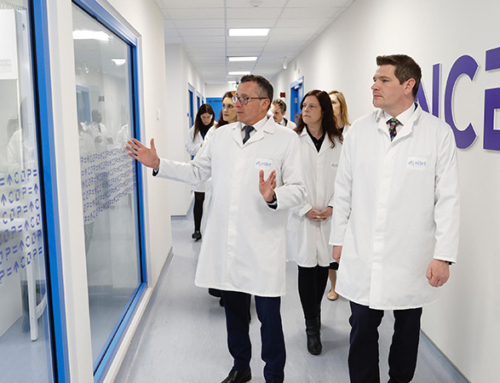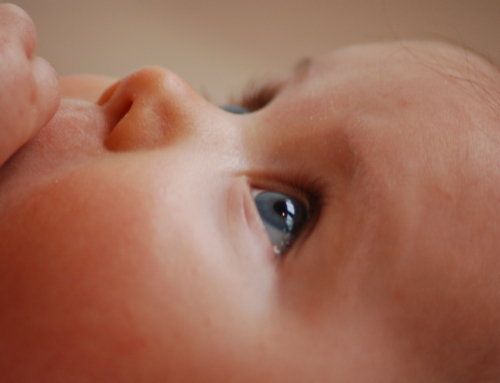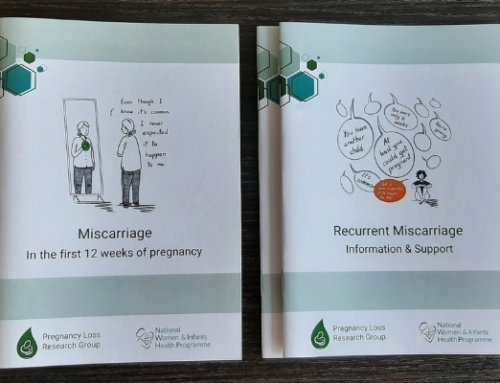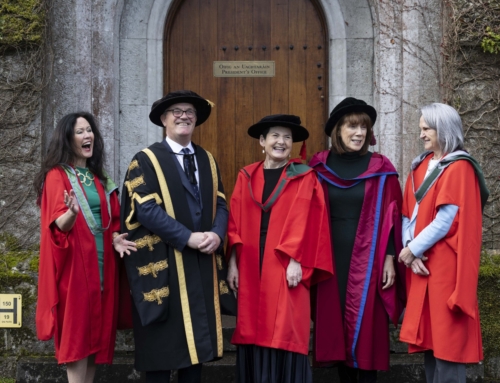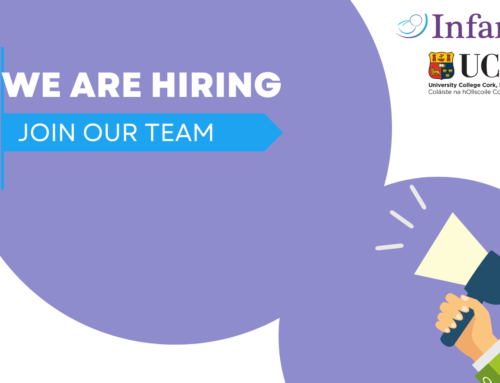Friday 14 December 2018
Since its establishment through a research Centre award from Science Foundation Ireland, and under the continuous leadership of Professor Geraldine Boylan, the INFANT Centre at UCC has been responsible for a number of innovative breakthroughs that are saving lives and improving outcomes for babies and their families every day, as well as shaping perinatal medicine around the world.
With a national and international focus, INFANT is now collaborating with over 35 industry and academic partners in more than 30 countries. INFANT research is continually published in top-ranking international journals, while pioneering research in pre-eclampsia, newborn brain injury, infant nutrition, and infant allergy is solving global clinical challenges.
INFANT Director Geraldine Boylan commented on the high impact research emanating from Ireland’s perinatal research centre, saying “INFANT has grown rapidly in its first 5 years. Not only have we grown in scale, industry collaborations and partnerships, but also in ambition and innovation. The INFANT team are responsible for internationally significant breakthroughs in perinatal and paediatric medicine, as well as research that is influencing and positively changing lives and outcomes for families every day.
“We are currently working on frontline research in areas such as early autism diagnosis, supporting newborn brain health and cognitive function, to treating the causes of allergy, eczema and asthma, among several other key projects. INFANT will continue to break new ground, as well as seeing current breakthroughs mature and move from ‘the bench to bedside’ whilst also developing the next wave of research to deliver better outcomes for mums and babies. We are grateful for all the support we have received from funding agencies, donors and industry partners since our launch in 2013 and we will continue to work tirelessly to deliver for all the families who generously support the work we do”.
Having grown from a team of 5 in 2013, the INFANT research team now exceeds 100 researchers, innovators, paediatric clinicians and experts, based at University College Cork, Cork University Hospital (CUH) and Cork University Maternity Hospital (CUMH) in 2018.
In these 5 years, researchers at INFANT have developed a number of key scientific breakthroughs, many of which are world 1st innovations such as an AI powered clinically validated seizure detection algorithm for newborns. This system automatically analyses and identifies seizures in newborn babies using EEG readings of the brain. Using artificial intelligence that detects brain seizures in newborns, INFANT has developed a new medical device for seizure detection in neonates that sets off an alarm at the cotside when baby seizures occur. This technology, uniquely, has been validated in a clinical trial and licensed to a global patient monitoring company, which means that the INFANT device will soon be available to babies worldwide. This breakthrough is already changing patient care for the better and the INFANT team are recognised internationally for their leadership in the area of neonatal seizure detection.
INFANT has also developed the world’s first early predictive biomarkers for pre-eclampsia. Affecting 5% of first-time mothers, preeclampsia is one of the most common complications of pregnancy and is a leading cause of maternal and infant illness and death. Using the latest technology to study metabolites, INFANT researchers discovered a set of molecules (biomarkers), which identify women at risk of developing the disease. A screening test has now been by a Cork-based start-up, Metabolomics Diagnostics who are leading a clinical study to commercialise the test to screen at risk first-time mothers to be easily identified leading to better pregnancy outcomes.
Newborn brain injury due to oxygen deprivation (HIE) remains a leading cause of acquired brain injury. INFANT researchers have identified biomarkers which could predict the occurrence of brain injury using INFANT’s extensive biobank. Using the data INFANT has collected on infants with HIE, the research centre has identified predictive markers found in umbilical cord blood. INFANT is working to develop a point-of-care diagnostic test which will help clinicians to predict HIE, which must be treated very quickly. The Clinical Risk Algorithm for Neonatal HIE is a real breakthrough for neonatal care. The aim of this work is to ensure all babies who require resuscitation at birth would be screened so that the narrow time available for treatment is maximised, saving large numbers of infants from long-term disability.
Most recently, INFANT’s allergy research has been part of a breakthrough treatment for peanut allergy. Without any treatment available, peanut allergy has put children and adults at risk of unpredictable and occasionally life-threatening reactions. Clinical trials co-led by an INFANT principal investigator and supported by the Clinical Research Facility in Cork , have found that a new oral treatment, can successfully reduce sensitivity to peanuts, offering a real lifeline to those affected by the most common food allergy and the single cause of most food allergy deaths. The immunotherapy is being fast tracked through the US Food and Drug Administration (FDA). Assuming FDA approval, the therapy could be available to patients around the world by late 2019.
In Ireland, 1 in 100 babies are born preterm and very low birth weight (under 5.5lbs). INFANT’s BabyGrow study has developed a way to measure nutritional support and growth rate in preterm infants in the Neonatal Intensive Care Unit (NICU). The earlier a baby is born, the lower the birthweight may be and this can have knock-on effects for health at birth and beyond. Very low-birthweight babies are more likely to have health problems as a new-born and will need special care in the hospital’s NICU. As a result of the BabyGrow project, two new nutrition products were introduced to Cork University Maternity Hospital. The PiNPoINT (Personalised Nutrition for the Preterm Infant) project is now observing the babies who are receiving the new nutrition product and conducting detailed assessments in these babies throughout their hospital stay and during infancy. This collaborative project has delivered innovative, evidence-based solutions to a long-standing unmet need for the benefit of the most vulnerable people in society.
In collaboration with UCC, Science Foundation Ireland and Cork University Maternity Hospital, INFANT opened Ireland’s first Integrated Clinical Academic Research Unit for Paediatrics. The first of its kind in ireland, the new paediatric academic unit focuses on improving health outcomes for children, from infancy through to adolescence through teaching, research and innovation.
Applauding INFANT’s achievements over the last five years, UCC’s Head of the College of Medicine and Health, Professor Helen Whelton, said, “INFANT has built the research infrastructure, capability and projects that are delivering the vision to create an internationally renowned Maternal and Child Health Research Institute. We, at UCC, are very proud of the INFANT Centre and all that the Centre has already achieved. We look forward to many more breakthroughs in maternal and child health research research.”


